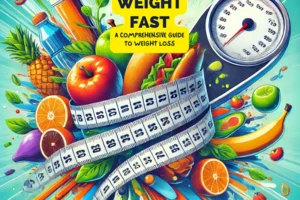Embracing a Healthy Weight Loss Journey as a Vegetarian/Vegan
Yes, you certainly can lose weight in a healthy way even if you’re a vegetarian or vegan. In fact, a plant-based diet can be an excellent strategy for weight loss due to its rich fiber content and low calorie density. Vegetarian and vegan diets also offer an array of health benefits that extend beyond weight loss, including lower risks of heart disease, high blood pressure, and type 2 diabetes.
Understanding the Role of a Vegetarian/Vegan Diet in Weight Loss
A vegetarian or vegan diet, just like any other diet, can contribute to weight loss when it creates a calorie deficit, which means you’re consuming fewer calories than you’re burning. This can be achieved by incorporating a variety of nutrient-dense, low-calorie plant-based foods and engaging in regular physical activity.
High Fiber Content
Plant-based foods are rich in fiber, which adds bulk to your diet without adding extra calories. This can help you feel full and satisfied, reducing the likelihood of overeating.
Low Calorie Density
Most plant-based foods have a low calorie density, meaning they provide fewer calories than the same weight of other higher-calorie foods. This allows you to eat larger volumes of food without consuming too many calories.
Components of a Healthy Vegetarian/Vegan Weight Loss Diet
A well-planned vegetarian or vegan diet can provide all the nutrients your body needs while promoting weight loss. Essential components of this diet include:
Fruits and Vegetables
These are low in calories and high in fiber, vitamins, and minerals. They should make up a large portion of your dietary intake.
Whole Grains
Whole grains such as brown rice, quinoa, and oats are excellent sources of fiber and can keep you feeling full for longer.
Legumes
Beans, lentils, and peas are high in protein and fiber, making them a staple in vegetarian and vegan diets.
Nuts and Seeds
Nuts and seeds are rich in protein and healthy fats. They’re calorie-dense, so they should be eaten in moderation.
Considerations for Vegetarians/Vegans Seeking Weight Loss
While a vegetarian or vegan diet can promote weight loss, there are some considerations to bear in mind:
Protein Intake
As plant-based diets exclude meat, which is a major source of protein, you’ll need to ensure you’re getting enough protein from other sources such as legumes, soy products, and whole grains.
Nutrient Deficiencies
Vegetarian and vegan diets can sometimes lack certain nutrients such as vitamin B12, iron, calcium, and omega-3 fatty acids. You may need to use fortified foods or supplements to meet your nutritional needs.
Overconsumption of Processed Foods
While many processed foods are technically vegetarian or vegan, they can be high in calories, unhealthy fats, sugars, and sodium. Limit your intake of these foods for healthy weight loss.
Practical Tips for Weight Loss as a Vegetarian/Vegan
Here are some tips to help you lose weight in a healthy way on a vegetarian or vegan diet:
Plan Your Meals
Planning your meals can help ensure you’re getting a balanced diet and can also prevent overeating.
Monitor Your Portion Sizes
Even healthy foods can contribute to weight gain if you eat them in large quantities. Pay attention to your portion sizes.
Stay Active
Regular physical activity is an important part of any weight loss plan. Aim for at least 150 minutes of moderate-intensity or 75 minutes of high-intensity exercise each week.
Stay Hydrated
Drinking plenty of water can help control your hunger and keep you hydrated.
To sum up, a vegetarian or vegan diet can certainly support healthy weight loss. With careful planning and a focus on whole, plant-based foods, you can lose weight while also reaping the many health benefits that a vegetarian or vegan diet has to offer.





